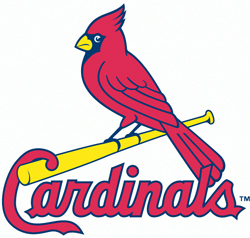 With the St. Louis Cardinals abandoning its own radio station for regional giant KMOX and the Minnesota Twins bypassing a Pohlad-owned station to re-sign with its current radio partner, the MLB trend toward teams owning media outlets appears to be stalled.
With the St. Louis Cardinals abandoning its own radio station for regional giant KMOX and the Minnesota Twins bypassing a Pohlad-owned station to re-sign with its current radio partner, the MLB trend toward teams owning media outlets appears to be stalled.
The Cardinals put together a deal with KMOX much like the Twins have with KSTP-AM: the team will produce the broadcast, hire the broadcasters and sell advertising, with the station coming up with an additional fee payment in exchange for its own spots on the broadcast. For the team, the broadcast is one more option on the sales side to go along with signage, sponsorhips and program ads. For the station, it has the prestige of being the Cardinals’ flagship as well as opportunities within the broadcast to promote its lineup the rest of the day.
In both cases, the teams decided to go with stations they didn’t own; the Cards walked away from KTRS, where it owns a majority share. The Cards once had grand plans for KTRS: Ballpark Village was to host its studios, and with the purchase of St. Louis Blues (NHL) broadcast rights, it was set up to be the dominant sports-talk station in the region. But the team’s limited signal put off fans right off the bat, as fans outside the immediate St. Louis area had problems picking up the signal after 6 p.m. In Minnesota, the Pohlad family bought B96, an urban radio station, several years ago and changed formats this past January while relocating the team transmitter amid rumors Twins broadcasts would be moving there when the KSTP deal ended after this season.
“We are very pleased that starting in 2011, Cardinals baseball will be back on KMOX, which was home to Cardinals baseball for 52 years,” said Bill DeWitt Jr., Chairman and General Partner of the St. Louis Cardinals, “KMOX is a market leader, with a rich tradition of covering the Cardinals and the ability to reach the largest number of fans in the St. Louis region and beyond.” Cardinals President Bill DeWitt III added: “KTRS has been a great partner and we are grateful for everything they have done over the last five years. While we looked at other options ranging from staying at KTRS to adding an FM partner to simulcast games, the case for going back to KMOX was very compelling.”
Now, in the business world synergy is a much overused and overhyped concept. At the end of the day, smarter heads decided they really didn’t to own the radio station in order to get the most from the rights: they still get the revenue from selling inventory, they get a partnership with a station who is working to market to the same demographics, and they don’t need to sink capital into a business with an uncertain future. (Indeed, the Cards will be selling off its 51 percent share of KTRS.) Land-based radio, especially on the AM side, faces some severe competition from the Internet; when you can listen to free high-quality streaming audio via MLB, what’s the appeal of local AM? For the Cards and Twins, it won’t matter where the games are broadcast as long as the aggregate audience is the same.
This leaves the Los Angeles Angels of Anaheim as the only MLB team broadcasting games on a team-owned radio station, KTAA 830 AM.
Changes on the minor-league level are a little different; many teams have abandoned radio broadcasts in favor of Internet-only broadcasts because of the economics involved. Most radio stations are unwilling to step up with broadcast fees and are demanding payment from teams for radio access, basically selling the time like KSTP and KMOX are doing for the Twins and Cards, respectively. This arrangement doesn’t work for all of minor-league and independent baseball; if it’s a crowded market, the team may step up and pay the fees, but many are not. As one minor-league owner put it: if sponsors aren’t demanding any radio time as part of their package, then why should the team pay for it? We expect the trend to continue, with more and more teams eschewing land-based radio in favor of Internet radio. Indeed, the smart ones will work on their own branded radio: why shouldn’t the Buffalo Bisons or Indianapolis Indians develop their own 24-hour programming on their own? Just a thought.
Share your news with the baseball community. Send it to us at editors@augustpublications.com.
Subscribers to the weekly Ballpark Digest newsletter see features before they’re posted to the site. You can sign up for a free subscription at the Newsletter Signup Page.
Join Ballpark Digest on Facebook and on Twitter!
